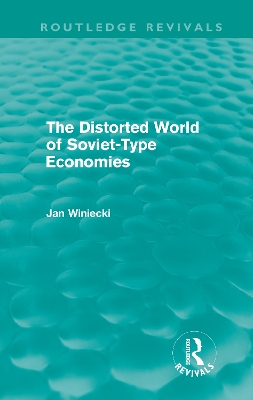Routledge Revivals
5 total works
First published in 1987, this is an analysis of the contemporary breakdown of political and economic systems within the Eastern European communist countries. Rather than passively following the developments of this crisis, the author seeks instead to identify the reasons for failure and to examine alternative policies that offer solutions to these problems.
Jan Winiecki's work offers a comparative study of the Soviet-type economies of the East with the market economies of the West; providing a cause and effect analysis of each model, with possible scenarios for their future prospects.
First published in 1988 this substantial and innovative contribution to the critical literature on the economies of the former Soviet bloc is unusual in that its author is equally familiar with both Western and Eastern sources. It highlights, in particular, a discrepancy between the behaviour of individuals in Soviet-style economies and that expected of agents in a market system. It proceeds to outline how the consequent discordance between microeconomic practice and macroeconomic planning generates fundamental economic distortions.
The Distorted World of Soviet-Type Economies (Routledge Revivals)
by Jan Winiecki




